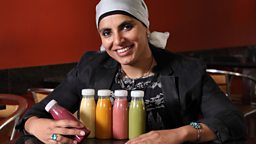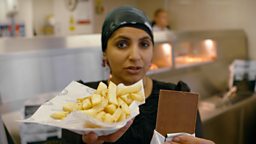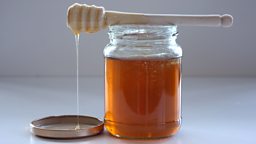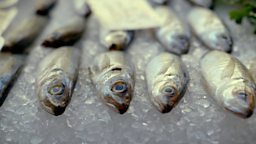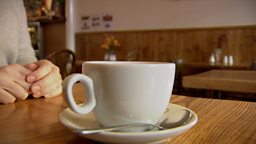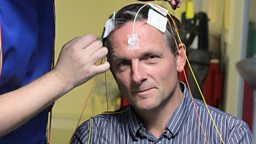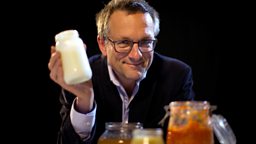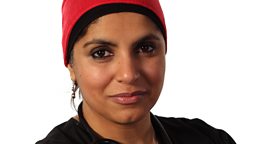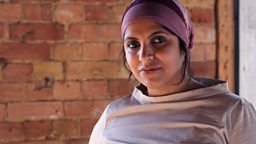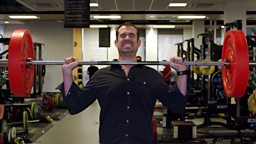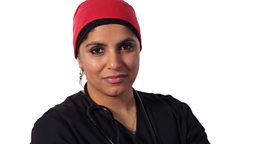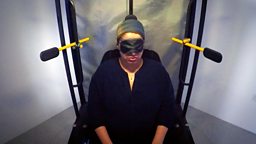What does eating a diet high in unhealthy fat really do to our bodies?
Fat is an essential part of our diet – in fact, it’s recommend that around 20 - 30% of all the calories we consume daily should come from fat. A good balance of fats helps keep our cells in good working order, which in turn means our bodies function as they should.
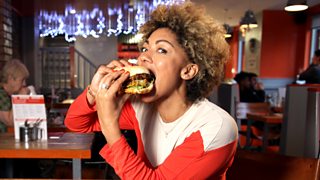
Yet as most of us are aware, eating too much fat can lead to health problems like weight gain and heart disease; especially if we eat too much of the wrong kind of fat, such as the omega 6 fats found in a lot of processed foods.
However, new research being done in Liverpool is revealing that too much unhealthy fat could be affecting our health in other ways we’re only just beginning to realise.
Surprisingly, it seems that it can affect our body’s ability to control our blood sugar levels. This is bad because an inability to control our blood glucose can lead to type 2 diabetes.
What’s more, sugar comes in lots of different forms – it’s not just a spoonful in a cup of tea or a chocolate bar – every time we eat a carbohydrate like bread or pasta, our body breaks it down into sugars.
The research suggests that if we regularly eat a lot of fat and carbs in a day, we could be doing lasting damage; but the scientists are also finding that men and women respond differently...
The research
Dr Zoe Williams joined Dr Matt Cocks of Liverpool John Moores University in an experiment based on a trial Matt had already conducted which had thrown up some surprising results. Matt had put 10 men and 10 women on a high fat diet for 7 days and had taken an array of measurements before and afterwards.
Zoe and Matt followed this same regime. Before they started their diet, Matt’s team used a DEXA scanner to measure their overall body fat – the fat that sits just under our skin – and their visceral fat. Visceral fat is a particularly unhealthy kind of fat - it forms around our internal organs, and it’s strongly linked to heart disease and type 2 diabetes.
The team also measured Matt and Zoe’s blood sugar levels, and throughout the week they wore a glucose monitor to keep track of their blood sugar. The idea was to see how the high fat diet was affecting their ability to clear sugar from their blood. Then came the diet itself…
This diet included a LOT of fat. In fact around 60% of Matt and Zoe’s total calorific intake came from fat – not only that, they were also eating around 50% more calories than they normally would. So this meant gorging on things like bacon, sausages, sausage rolls, quiche and yoghurt. A typical evening meal involved 3-4 slices of bacon, 2 sausages, 2 hash browns – and a lump of cheese!
Twice during the week, Matt and Zoe drank a sugary drink; this was designed to introduce a lot of sugar into their blood stream to see how their bodies coped with it. This mimics what happens when we have a carb-rich meal like pasta or potatoes – or when we eat a slice of cake; it all breaks down into sugars, gets into our blood, and our bodies have to clear that sugar away. The glucose monitors Matt and Zoe were wearing kept track of all of this, and allowed Matt to see if the high fat diet was making them better or worse at dealing with these sugars.
The results
The results were somewhat surprising.
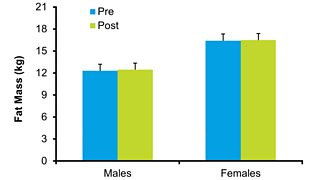
In terms of overall body fat, there was very little change. Matt gained a little weight, and Zoe lost a little – but they were insignificant amounts.
This tallies with Matt’s earlier trial which showed that after just 7 days of gorging on fat, men and women don’t tend to get fatter – however, if they continued that diet for longer, there’s little doubt they would do!
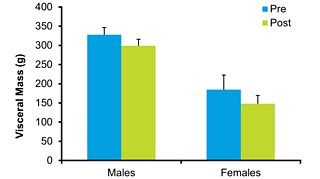
With visceral fat, it was a different story; again, Zoe actually lost a little, but Matt definitely gained some. And again, this largely tallies with Matt’s research – after just 7 days on the diet women don’t seem to gain much visceral fat, but men do.
We know that regardless of gender, some individuals are more prone than others to putting on visceral fat, so there is variability amongst people – but Matt’s work is showing that men seem to be particularly susceptible to putting on this dangerous kind of fat, especially if they eat a lot of fatty foods.
The blood sugar results revealed the most surprising data – and something previously unknown.
It seems that the high fat diet doesn’t affect women’s ability to cope with changes to their blood sugar levels – but it has a significant impact on men.
In fact, on average men get 14% worse at clearing glucose from their blood while they’re on a fatty diet – and in Matt’s case, he got 50% worse

What this means
Matt’s research suggests that regularly eating unhealthy fats can have an impact on our ability to cope with blood sugar spikes – which is what happens when we eat carbs, cake or fizzy drinks – and that this impact is greater if you’re a man.
This connection hadn’t been made prior to Matt’s work, and while it’s an exciting new finding in scientific terms, it also provides us with a health warning, because poor control of blood glucose can lead to type 2 diabetes.
So men who regularly eat too much fat could be compromising their ability to cope with blood sugar changes – and this in turn could put them at a higher risk of developing type 2 diabetes. In fact, this may help to explain why more men than women seem to develop type 2 diabetes.
Matt’s research suggests that the worst time to have something sugary (including carbs) is about 6 hours after eating a fatty meal.
While the high fat diet Matt and Zoe undertook is extreme in its levels of fat and calorie content – this is intentional. In order to see any effect in a short space of time scientists sometimes give subjects extreme amounts of a drug, diet or treatment.
While in the real world it’s unlikely very many people eat a diet like this, the same processes will likely be happening to a lesser extent if you regularly eat too many fatty calories, especially if they’re coming from the “bad” fats like Omega 6.
So – not only can too much fat affect your weight, it may also be compromising your ability to deal with blood glucose changes – especially if you’re a man – which could lead to other health problems.
So the best advice is to stick to a balanced diet, without excessive amounts of fat. But if you are following a diet that is high in fat, it’s probably a good idea to limit your carbs.
